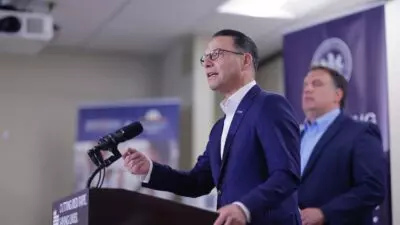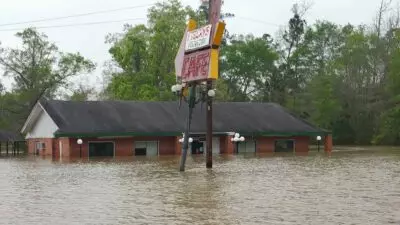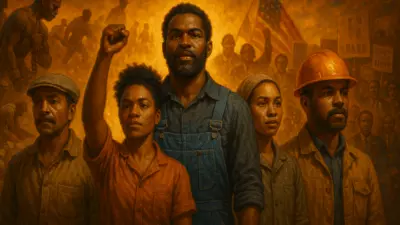Before Postindustrial’s founding — way back in 2018 — I was still covering conflict in Iraq.

I tagged along with Iraqi Special Forces as they took on the Islamic State in some of the deadliest, most destructive fighting I’ve ever seen.
So, when starting Postindustrial, I thought I could breathe easier by focusing my attention on Postindustrial Communities both in the U.S. and around the world.
No more war. No worry about me and others getting hurt, or worse.
Back then, I felt like I had ended my long-running dalliance with dangerous stories.
Fast forward to today …
I recently attended a safety and security workshop designed for journalists reporting in swing states who will likely face physical, psychological, and online threats while doing their jobs because too many Americans had their sensibilities rewired to hate us, the “Enemy of the People.”
The skills taught by the International Women’s Media Foundation (IWMF) — a nonprofit supporting journalists worldwide — was not unlike those I was taught by my war-reporting mentors.
[Great organization, by the way. Check them out.]
Things like: How to assess a crowd for hostile actors? How to blend in amid hostiles to keep yourself safe? What to do when the worst happens, shooting, explosion, etc.?
From the few hours I spent with IWMF trainers, I came away with a couple of things:
- A handful of smart ideas for keeping yourself safe I hadn’t considered, which I plan to pass along to anyone Postindustrial sends into the field this election season
- Absolute horror at the fact that in 2024, in the United States, journalists need to prepare for this election like they’re heading into a warzone.
“We developed this project, hopefully, as a preventive approach to safety with an understanding that journalists are facing a wide range of threats,” said Nadine Hoffman, IWMF’s Deputy Executive Director, who I met during their recent workshop in Pittsburgh. There are more trainings scheduled for cities in Michigan, Wisconsin, North Carolina, and elsewhere.
“We’re working in the states we’re working in because they have the largest number of extremist groups, ” she added. “There is going to be an escalation [of threats] as campaign seasons kicks into high gear.”
Unfortunately, those threats are already occurring.
According to the U.S. Press Freedom Tracker, a database of threats against journalists, there have been more than two dozen incidents of arrests, threats, and other harassment against U.S. journalists in 2024.
Most recently, a journalist in Nashville was arrested just a few days ago while covering a student protest against the Israel-Gaza war.
Hoffman noted that journalists she and others with IWMF have trained report feeling intimidated by citizens at places that once felt safe, like city council and school board meetings.
“Some journalists say they are worried about covering school board meetings because some might follow them to their car and get their license plate number,” she told me, which is apparently happening more and more to local news gatherers.
Look, we all know why this is happening. You can’t have one of history’s greatest conmen lambast the news media for nearly a decade and not expect dangerous repercussions for journalists.
So IWMF and other organizations offering this vital training want journalists to be prepared for the worst amid unprecedented invective and physical violence directed their way.
“We could see civil unrest and political violence that put journalists at risk on Jan. 6,” warned Hoffman. “But we don’t know exactly where we’re going to see it.”
IWMF Security Director Jeff Belzil calls on his experience in the Canadian military, serving several tours in Afghanistan, to teach veteran and newer journalists alike how to stay safe during these volatile times.
“You need to be able to ‘read the room’ and be aware of the potential threats,” said Belzil, echoing the same training I received decades ago while learning the ropes of war reporting.
“Several years ago, I wouldn’t have considered teaching this to journalists in the U.S.,” he said. “Now? Things are very different.”
While I find it utterly reprehensible that journalists working in America have to prepare for this election season like they’re heading into battle, it’s good to know they can get the training they need to survive and thrive in this new era of hatred toward those trying to tell the truth.
Still, I’m sad and worried.
Because if the rhetoric and violence against journalists in America don’t get dialed down, I’m going to have to get my war-reporting helmet and body armor out of the closet.







